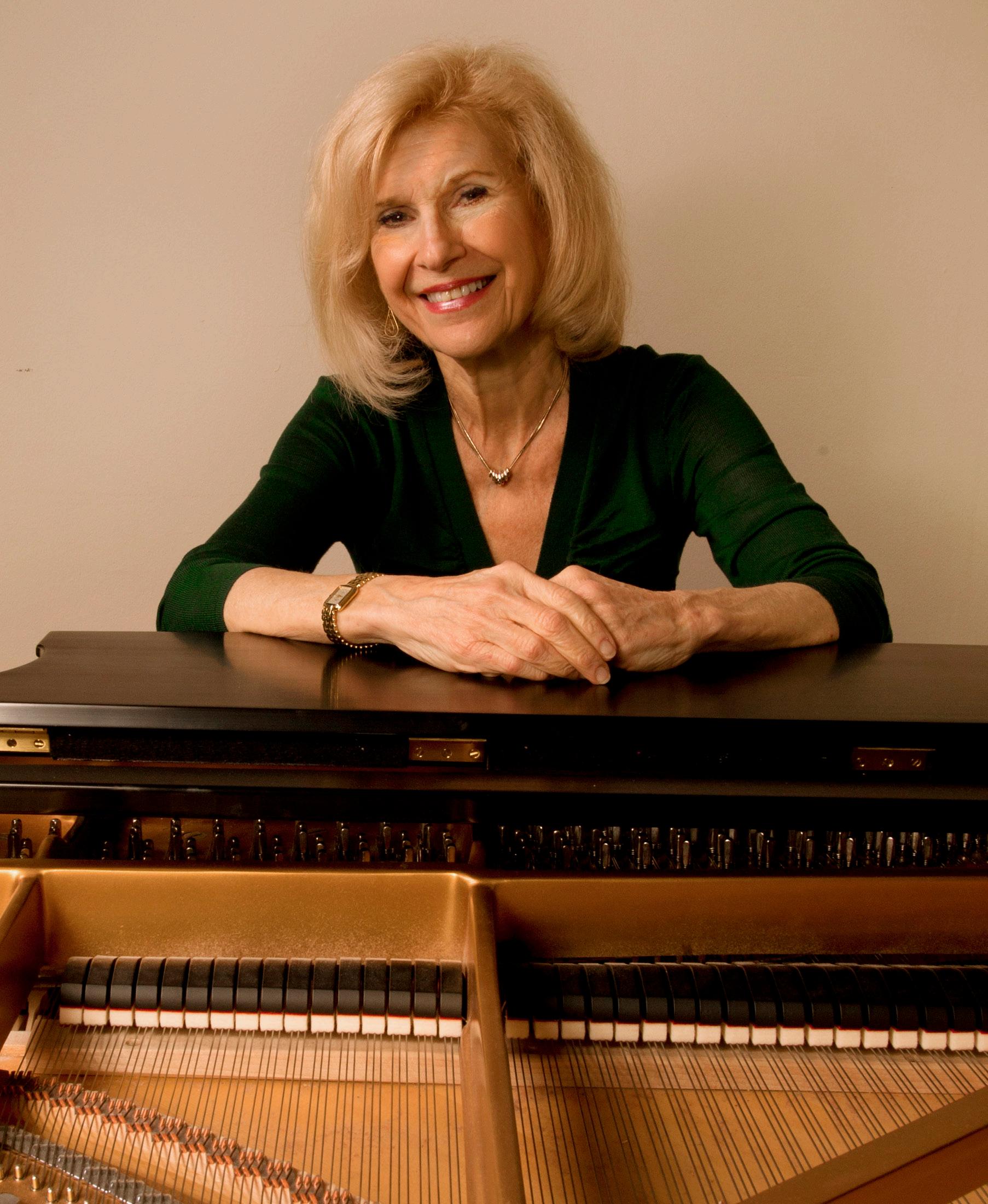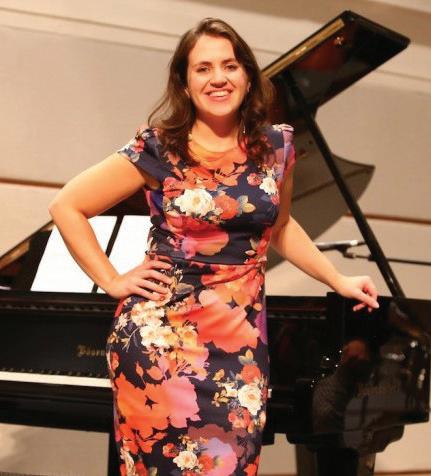
7 minute read
Musicwoman Magazine Spring 2020

I met Amy Bormet in 2015, at the Women in Jazz Festival 2015 in Gothenburg, Sweden. Our bands, Ephemera and Raw Sound Sweden, shared the stage and spent a week in residency at Gerlesborgskolan on the beautiful Swedish west coast. We wanted to explore music together, so, we met in Los Angeles, Washington, Gothenburg. We co-founded the Harold Trio, with drummer Tina Raymond, and we released two albums in Los Angeles. We talked a lot about jazz, women musicians and composers, the music business, and equal opportunities. I admire the strength and consistency of Amy’s hard work, as a musician, producer, founder, and director of Strange Women Records and the Washington Women in Jazz Festival. She is inspiring. [http://amykbormet.com]
AB: In 2011, I released my first album. After securing reviews, I hoped to get booked at the Jazz Festival in my hometown of Washington, DC. Unfortunately, they did not accept my proposal. That year, they had 73 artists, and only three were women who were vocalists, not instrumentalists. I knew it was not the content of my music. My performances were not lacking in skill and art. So, I recruited several amazing women and began the festival to disrupt the narrative of jazz as for and by men, only. After the first year of rave reviews and tremendous community support, I continued to build, until the women I shared the stage with became powerful participants in the Washington D.C. Jazz scene. The festival in March 2020 will be the 10th festival. I have grown along with it.

BV: Amy Bormet, you are a pianist, singer, composer, and the founder of the Washington Women in Jazz Festival organized in 2011, as an annual festival with local, national, and international guests. Why did you organize the Washington Women in Jazz organization and festival?
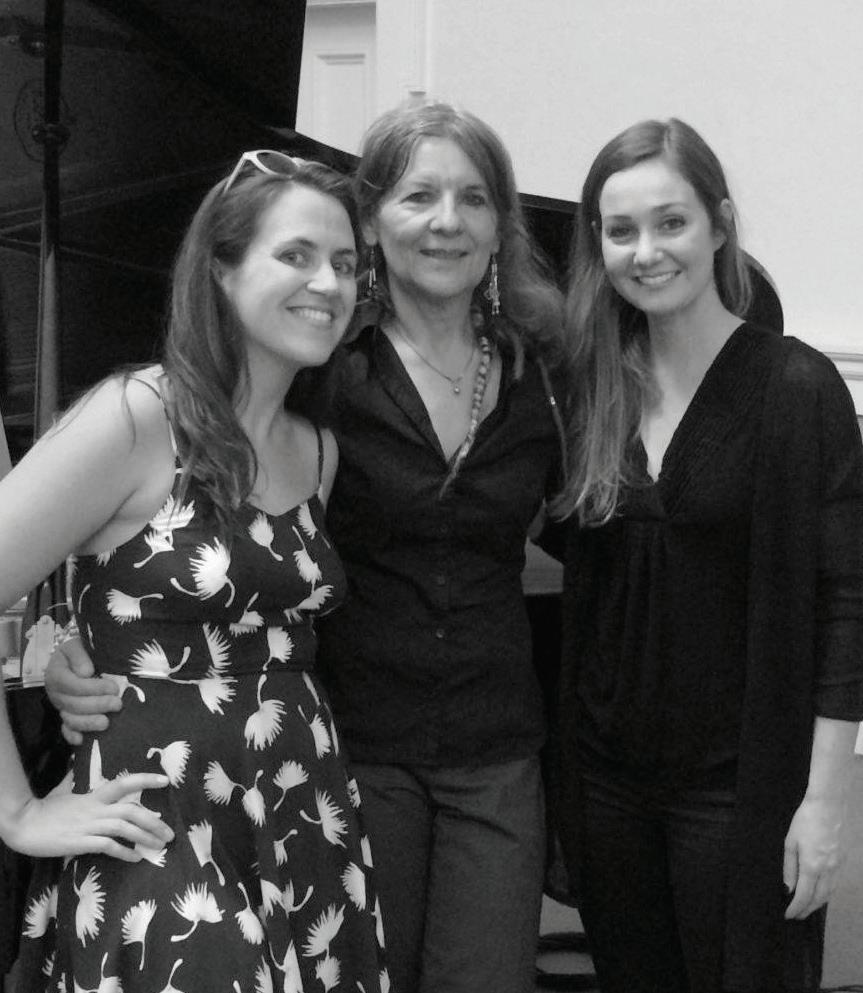
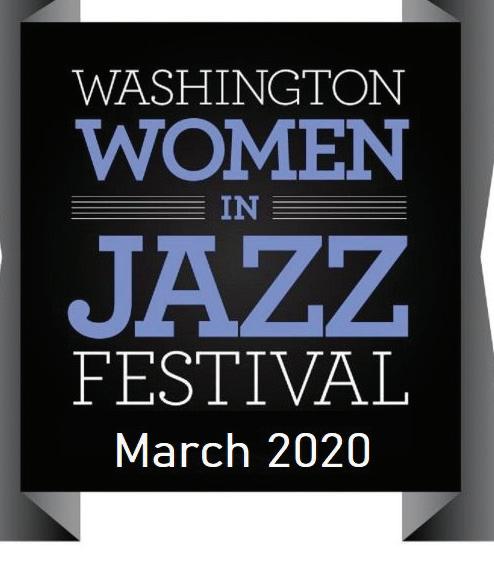
[http://www.washingtonwomeninjazz.com]
BV: Why do we still have to overcome prejudices and attitudes towards women musicians?
AB: The patriarchy is a system that decides which activities are appropriate for which people. Women are not supposed to take risks, be loud, or be creative.
BV: Why is your festival an important contribution to the music?
AB: Artists I present are given an opportunity to develop and create in a supportive setting that leads to increasing their visibility in DC and beyond. I document and promote the festival so that photos and videos of these fantastic women musicians are seen, widely.
Con’t on page 67
Con’t from page 23
BV: How difficult is it to establish a series of concerts and pay the musicians?
AB: It has been very difficult. I struggle to secure funding for every performance. I rely on volunteers to support the events. I am always seeking new donors and sponsors. I have paid many women solid artist fees, while others support the cause but are worth far more than what they are paid. I continue to seek funding and increase awareness.
BV: How difficult is it to get the media to cover your events?
AB: Luckily, I have wonderful media partners like WPFW FM 89.3 Jazz and Justice Radio. Also, I host a weekly radio show with local musicians. CapitalBop, Inc. is a nonprofit organization dedicated to preserving, promoting, and presenting jazz in Washington, D.C. They promote and create Jazz events on a high level. Otherwise, I get local news coverage and interviews. I am sad when DC people say they never heard of us. All I can do is spread the news at schools, churchs, and community events, throughout the year.
BV: How are the Jazz venues in Washington and adjacent cities doing?
AB: Traditionally, Washington is a strong Jazz city with many theaters and performance spaces like The Kennedy Center that opened The Reach, a new space, in Fall 2019. There is a passionate arts community in DC. Despite the economic challenges of jazz clubs, there are many places to present music like embassies, art museums, parks, churches, and schools.
The U Street corridor is known as Black Broadway. Historically, it has been an important locale for Jazz performances. Unfortunately, smaller spaces with live music have closed with the toxic gentrifying mix of price, gouging rents, and condominium development. A few spots soldier on like Twins Jazz owned by two Ethiopian sisters.
BV: Your festival is an inclusive event. Women musicians come from different musical horizons and generations. Is attracting an audience difficult?
AB: I include as many women as possible in every festival. I am feeding a community of women and their supporters. But women in the music scene rarely get opportunities to work together or meet women from different styles of music. Jazz is such a large and beautiful quilt. We take from everything to create new music and celebrate our ancestors.
When college students work with veteran musicians, there is a depth to the conversation that strengthens the resilience of both generations. As a white woman who graduated from DC public schools and Howard University, I am interested in racial diversity in the Jazz scene.
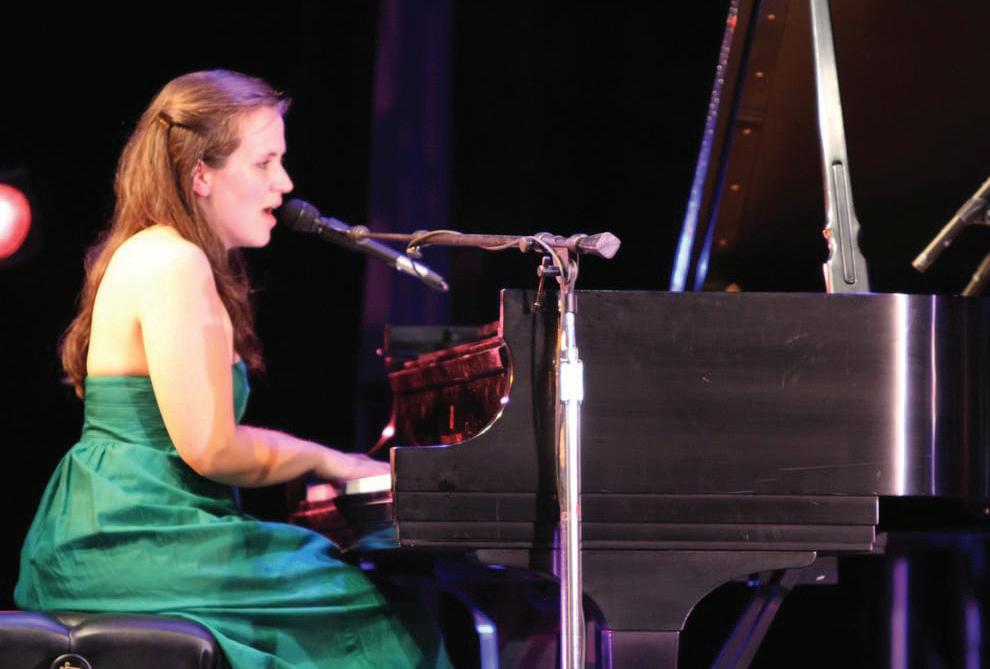

BV: You tour, regularly, on different continents. Tell us about your journeys and projects.
AB: Right now, I am working on AmyAna, a quintet that I co-lead with drummer Ana Barreiro. We toured Brazil in October 2019. We will tour the east coast in April 2020. I am excited about our April tour because it is supported by a Jazz Roads grant. We will take the full band
Biggi Vinkeloe talks with AMY BORMET (con’t)
Biggi Vinkeloe talks with AMY BORMET (con’t)

to several places, including our NYC debut at Tribeca PAC.
tunes on the piano rolls, while creating my own sounds, running up and down the keyboard. I loved music theory and I continue to study and enjoy it, every day.
BV: Do you compose music? If so, how many compositions do you have.
AB: Yes. I compose as often as possible. I am not sure how many are finished pieces. But I have composed over 100.
BV: What advice would give a younger women entering the world of music performance?
AB: Do not quit. Book your own gigs. Be a leader. Be bold. Do not wait for an invitation to perform. Make it happen and invite others.
BV: Amy, thank you so much for this inspiring talk!
Also, I have a trio in DC that performed at the Kennedy Center and the DC Jazz Fest. I hope to get a tour together for that ensemble. Eventually, I want the Harold Trio with Biggi Vinkeloe and Tina Raymond to tour. Maybe in 2021. I am grateful to have played in Europe on a few tours over the last five years, with my group Ephemera at Women in Jazz Sweden.
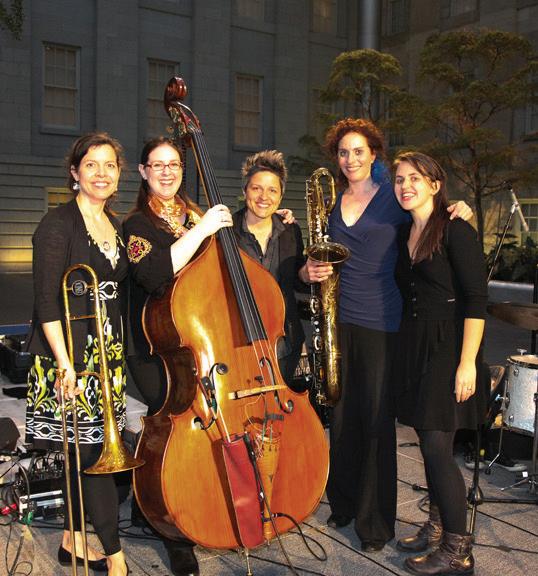
BV: Why did you start your own record label, Strange Woman Records?
AB: I was not satisfied with previous results from other record labels. So, I decided to revamp the whole process and take inspiration from Betty Carter to start my own record label. My husband, Matt Dievendorf and I have a great partnership and enjoy working together, with Washington Women in Jazz, and touring with our bands. Strange Woman Records is the inevitable outcome of our shared time and interest in recording and promoting new music. It is a tremendous amount of work that will grow over time and serve as proof of our efforts.
BV: How did you come to music as a child?
AB: My mother is a musician. We had my grandmother’s player piano. I learned the
Biggi Vinkeloe musician, composer, saxophonist, and educator in Sweden and California. She is passionate about women’s rights. She works for women’s empowerment, globally. She was in India, in January 2020. Member of IMPRA, Sweden (2007-2019) [www.impra.se]; the 20172019 International President Women in Jazz South Florida, Inc.



